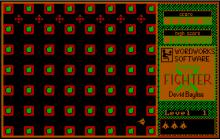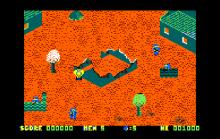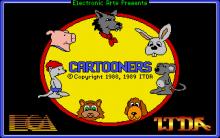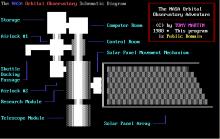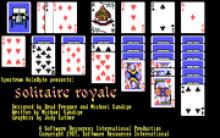Executive Suite
Press Keyboard right side: Alt+Enter keys to switch to full screen game play, and Alt+Enter keys to return.
How to play Executive Suite
Each game uses different controls, most DOS games use the keyboard arrows. Some will use the mouse.
Executive Suite Description
The game begins with an interview portion, where the applicant arrives at the office of MMC's Personnel Manager. The player is asked a series of probing demographic questions about where they went to school, what they studied, how well they did in their studies, what their personality and level of ambition is like, their favorite sport and years of work experience, as well as their age, gender, and marital status. Some of this information is used to determine the list of entry-level jobs available to the player—the high school graduate is stuck with an initial position in the mailroom or as a maintenance person while someone with an Engineering education and good grades will be able to enter at a higher position. Amusingly, background and consistency has little to no bearing beyond this point - until very senior levels, the player is encouraged to take jobs in many departments to build their ranks of named friends across the organization.
Since at MMC, workers apparently do not receive promotions but instead must every few years apply for new jobs internally, gameplay proceeds very cyclically. At application time, the player is presented with a list of available jobs which have a particular job level and are tagged to a specific department (Production, Marketing, Sales, Public Relations, Administration, Engineering, Accounting). Their character's performance in their previous position (poor, good, average), their repute in individual departments, and the status of the global business cycle (the economy is a state of expansion, recession, or even depression) determines this list, down which the player can (if they are incompetent or even unlucky) fall precipitously, or get stuck in low or mid-level jobs. As the employee makes decisions, they collect reputation attributes (such as for habitually shirking work or, on the other hand, aggressively looking out for the company's interest) and cause events for which they are either "fortunately" or "unfortunately" remembered at hiring time; this determines whether they get a "thumbs-up" or a "thumbs-down" for the new post. If they get the job, a Status Change form is sent detailing the new salary and an often dubious set of perks to go along with the new position.
When not between jobs, the player is presented with short scenarios pertinent to the position which must be resolved by picking one of several solutions. The scenarios vary in terms of the seriousness of poor outcomes: sometimes the worst choice is not much different from the optimal choice (especially in social "no-win scenarios", sometimes only the next hiring cycle is adversely affected, or an action puts off a potential executive ally or puts a permanent black mark on the personnel file. In a few rare instances, even a flawlessly performing employee can trigger a game over with a poor decision - such as by quitting the company for another job, or by sleeping with the wrong contact. Too much "poor" performance in a role also triggers a note detailing the player's termination ("Hit the road, jack") from MMC, replete with an enumeration of all the demerits registered in the personnel file, and the game ends.
Eventually, if the employee avoids termination, and reaches the highest job level before reaching the mandatory retirement age, they have the opportunity to apply for the position of President, subject to a review of their merits conducted by the Board. Upon winning the game, there is a nameplate change in the Executive Suite, a formal announcement of the hire is made, and the employee's current worth is calculated as a final score.









